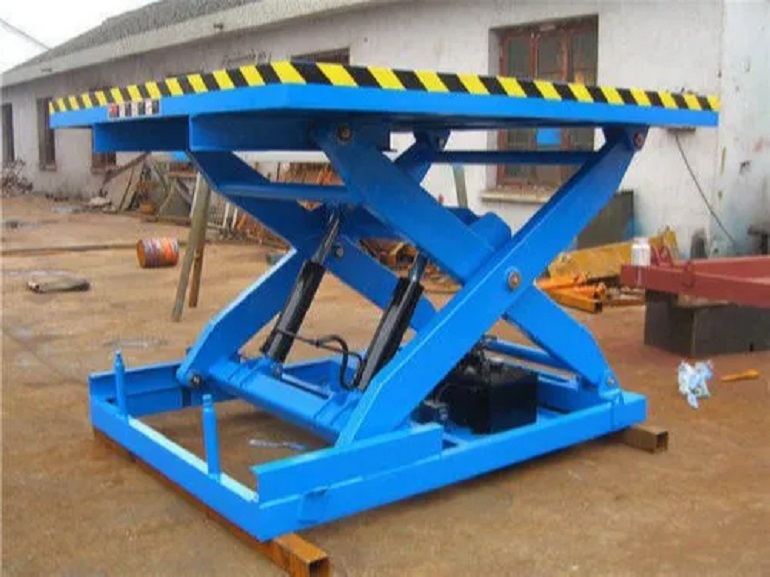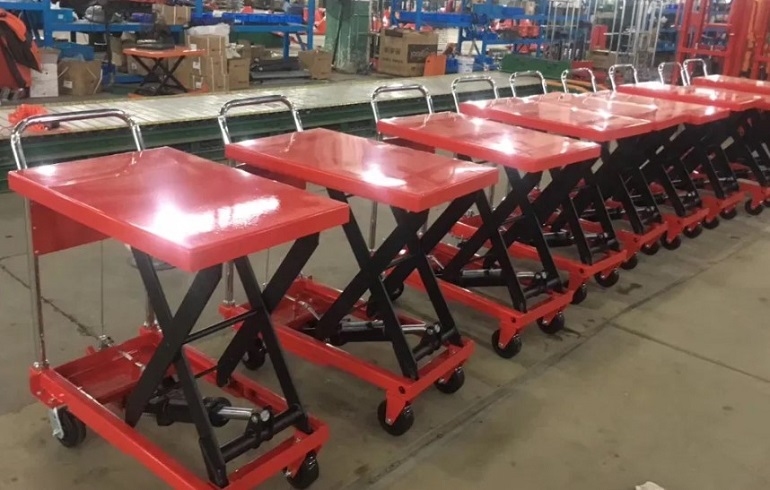In the world of workshops and manufacturing, efficiency and productivity are paramount. Every aspect of the workspace, from equipment to processes, plays a crucial role in achieving optimal results. Among the many tools and devices that enhance workshop functionality, electric lift tables stand out as indispensable assets. These versatile pieces of equipment are designed to elevate, lower, and position heavy loads with precision, making them vital for a wide range of applications. Having said that, let’s explore what electric lift tables are, their importance in a workshop setting, and the key factors to consider when choosing the right one to meet your specific needs.
Understanding Electric Lift Tables

Electric lift tables, also known as electric lift platforms or electric scissor lifts, are mechanical devices designed to vertically raise or lower heavy objects or materials. They consist of a scissor-like mechanism that extends and retracts, supporting a platform on which the load is placed. These tables are equipped with an electric motor that powers the lifting mechanism, providing precise control over the elevation of the platform.
The versatility of electric lift tables makes them invaluable in a variety of industries and applications, including manufacturing, automotive, logistics, and warehousing. They are used for tasks such as material handling, assembly work, equipment maintenance, and ergonomically positioning workpieces for improved worker comfort and safety.
The Importance of Electric Lift Tables in a Workshop

Electric lift tables play a pivotal role in enhancing workshop functionality and productivity. Here are some key reasons why they are considered indispensable in this environment:
- Ergonomic Work Positioning: Electric lift tables are designed to elevate workpieces, tools, or materials to a comfortable working height. This ergonomic advantage reduces strain on workers and minimizes the risk of injuries associated with bending, stooping, or repetitive lifting. By providing an adjustable work surface, lift tables contribute to improved worker efficiency and well-being.
- Versatile Load Handling: Electric lift tables are engineered to handle a wide range of loads, from small components to bulky machinery. Their adaptability makes them suitable for lifting and positioning diverse materials, enhancing their versatility in workshop applications.
- Precise Height Adjustment: The electric motor-driven mechanism of these tables enables precise control over the height adjustment. This level of accuracy is vital for tasks that demand exact positioning, such as welding, assembly, or inspection. Electric lift tables ensure that workpieces are consistently aligned at the desired height.
- Space Optimization: In workshops where floor space is at a premium, electric lift tables offer a compact solution. They can be stationed in a fixed location or mounted on casters for mobility, allowing for efficient space utilization and adaptability to changing workflow requirements.
- Load Stability and Safety: Electric lift tables are engineered with safety in mind. They typically include features like safety rails, anti-pinch mechanisms, and emergency stop buttons to protect operators and prevent accidents during operation. This focus on safety is essential in maintaining a secure working environment.
Choosing the Right Electric Lift Table

Selecting the right electric lift table for your workshop is a decision that should be based on careful consideration of your specific needs and requirements. Here are key factors to keep in mind when choosing the ideal lift table for your workspace:
- Load Capacity: Determine the maximum weight that the lift table will need to support regularly. It’s essential to choose a table with a load capacity that comfortably accommodates your heaviest loads, allowing for safe and efficient lifting operations.
- Platform Size: Consider the dimensions of the platform in relation to the size of the materials or equipment you’ll be handling. The platform should be spacious enough to accommodate your workpieces without overcrowding, ensuring stability during operation.
- Vertical Travel Range: Evaluate the required vertical travel range to meet the demands of your applications. Different lift tables offer varying lifting heights, so select one that aligns with your specific needs, whether it involves low-height adjustments or substantial elevation.
- Mobility and Portability: Depending on your workshop layout, you may require a lift table with mobility features. Some models are equipped with casters, allowing for easy relocation within the workspace. If mobility is essential, ensure the table’s casters are durable and suitable for your flooring type.
- Power Source: Electric lift tables are available in various power options, including single-phase or three-phase electricity. Choose a model that aligns with your workshop’s power supply capabilities and infrastructure. If you require a portable solution, battery-powered tables are also available.
- Safety Features: Safety should be a top priority. Look for lift tables that include safety features such as anti-pinch guards, safety rails, emergency stop buttons, and overload protection. These features are crucial for creating a secure work environment.
- Control Mechanism: Electric lift tables offer different control mechanisms, including push-button controls, foot pedals, or remote control options. Consider which control mechanism best suits your workflow and operator preferences.
- Durability and Build Quality: Quality construction and durable materials are essential for the long-term reliability of your lift table. Look for models constructed from robust materials that can withstand the rigours of daily use in a workshop setting.
- Maintenance and Support: Investigate the maintenance requirements of the lift table and the availability of service and support from the manufacturer or supplier. Regular maintenance is essential to ensure consistent performance and longevity.
The Final Word
In conclusion, electric lift tables are invaluable assets in a workshop, contributing to enhanced efficiency, worker safety, and ergonomic work positioning. Their versatility and precise height adjustment capabilities make them ideal for a wide range of applications. When selecting the right electric lift table for your workshop, carefully consider factors such as load capacity, platform size, mobility, safety features, and maintenance requirements to ensure that your investment aligns with your specific needs and contributes to the seamless operation of your workspace. With the right lift table in place, you can look forward to increased productivity and a safer working environment in your workshop.

